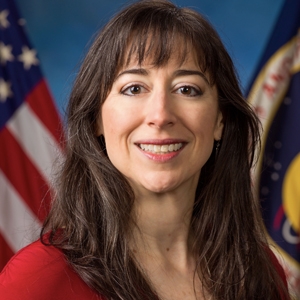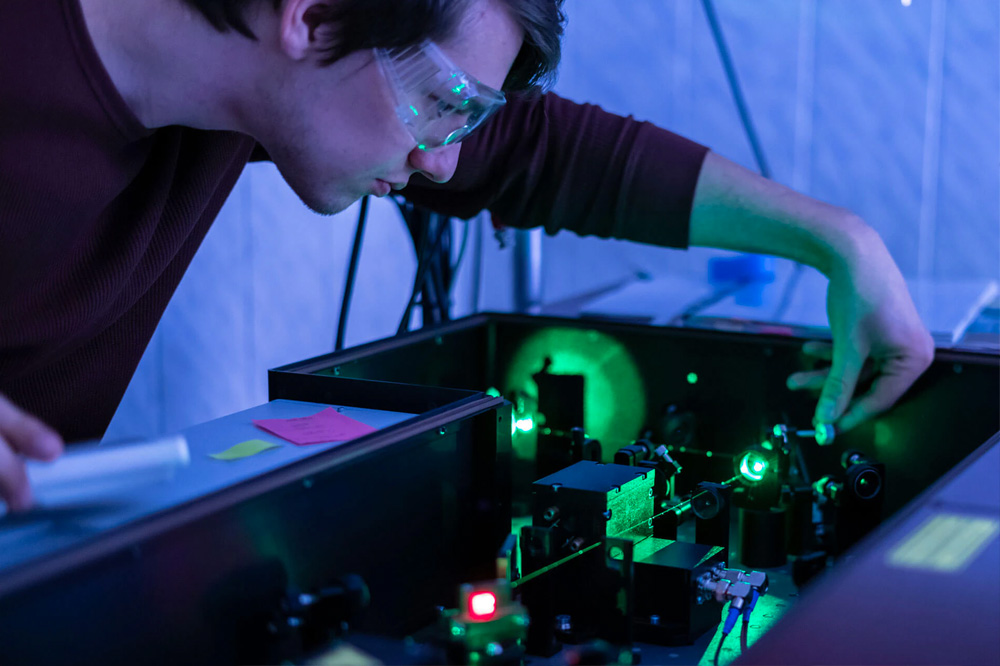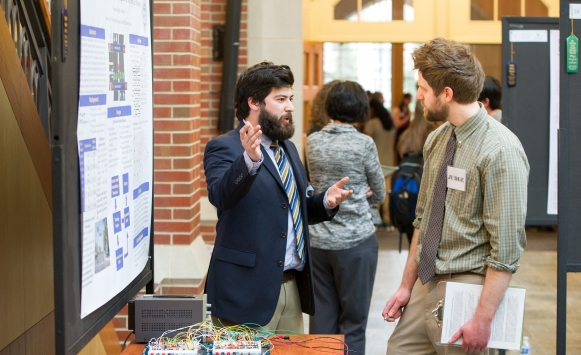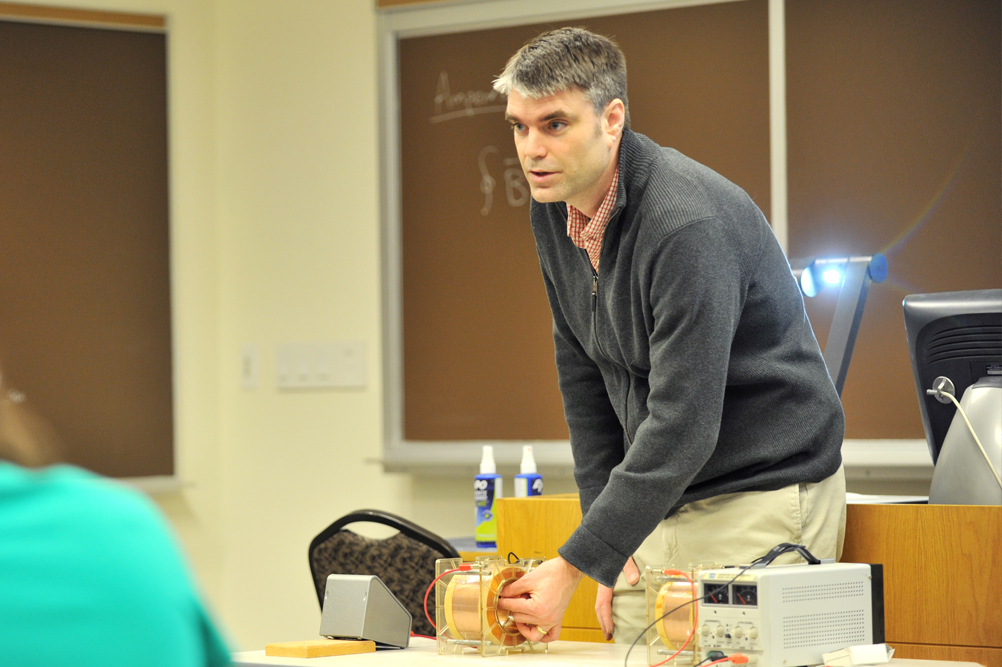As an interdisciplinary physics student, you’ll learn core, foundational physics concepts, design, conduct, and evaluate research, and take complementary classes in areas like biology and chemistry. This major allows you to study physics without too narrow of a focus, providing opportunities to apply your knowledge to other scientific fields and grow into a well-rounded scientist. You’ll graduate with a deeper understanding of how the world around you works, prepared to pursue medical or business school, or a career in environmental science, technical sales, or patent law.
Bachelor of Science (BS) in Interdisciplinary Physics
Interdisciplinary Physics at JCU
This physics track is uniquely flexible, providing you with core physics skills while allowing time for courses in areas like biology, chemistry, psychology, math, computer science, or business. It’s a great option if you hope to double major or pursue JCU’s 5-year MBA program, in which you complete a bachelor’s degree and a master's of Business Administration in five years. With a degree in interdisciplinary physics, you’ll walk away with a breadth of knowledge that can be applied to a range of careers.
According to Physics Department Chair Jeffrey Dyck, “Studying everything from the behavior of atoms to the physics of new materials in a liberal arts environment will give you a perspective that many other institutions can’t provide. In addition to your technical training, you’ll have superior oral and written communication skills that employers and graduates schools value.”
95%
Percentage of students employed, in graduate school, or doing voluntary service 9 months after graduation
#1
Physics majors score higher than other majors on the MCAT
Physics majors score higher than other majors on the MCAT
The 40-year return on investment of a liberal arts education
BS in Interdisciplinary Physics Program Highlights
Featured Courses
PH 111 FROM PLANETS TO THE COSMOS
Introduction astronomy designed primarily for students not majoring in the physical sciences. Topics include: the history of human investigations of the cosmos, constellations and observations of the night sky, introduction to objects in our Solar System, formation of stars and their evolution, galaxy formation and structure of the universe
PH 115 ENVIRONMENTAL EARTH SCIENCE
Interdisciplinary approach to the study of our planet, from its origins to current challenges. Formation of the earth, matter and minerals, the rock cycle, plate tectonics, earthquakes, volcanism, and climate change.
PH 117 CLIMATE CHANGE SCIENCE & POLICY
Composition of the atmosphere, energy balance of the Earth, evidence of recent changes in the composition of the atmosphere and climate, natural and human-induced climate changes, future climate scenarios, impacts of climate change, and climate change mitigation and adaptation policies.
Notable Alum

Angela Harrivel, '96
After completing both her undergraduate and masters degrees in physics at JCU, Dr. Angela Harrivel went on to complete a PhD in both philosophy and biomedical engineering at the University of Michigan. After working as a software engineer, she joined NASA. Today she does biomedical engineering at NASA’s Langley Research Center, where she leads the Human Performance and Monitoring Team in the Crew Systems and Aviation Operations branch.




